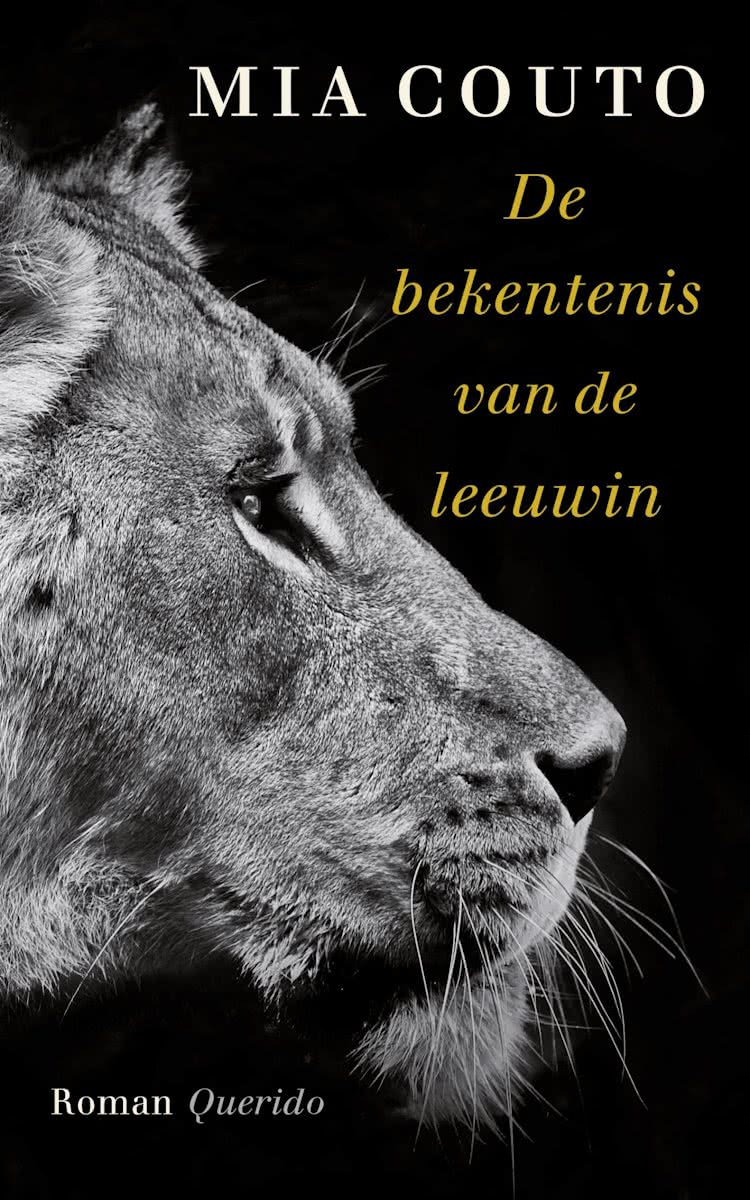Couto’s book Confession of a lioness (A Confissão da Leoa), reads as a poetic puzzle. The storyline comes to us in fragments and unfolds very slowly and indirectly. Set in Kulumani, a small, isolated village in the north of Mozambique, it soon becomes clear that something is very wrong there, but what exactly?
Mariamar, a young woman of 32, who is confined to her hut by her despotic father, represents the voice from within the village. At the same time she is very much in between worlds, as the daughter of ‘asimilados’ and, also, the only woman in Kulumani who can read and write. The second voice, the one of the outsider, belongs to a hunter, Arcanjo Baleiro (the name means ‘Archangel Bullseye’), who keeps a diary. He is asked by the local authorities to free Kulumani from the attacks by lions who have caused the death of several inhabitants, the last one of whom is Silência (Silence), Mariamars sister.
Arcanjo Baleiro, who is troubled by his own family history, comes from the country’s capital, Maputo. He visited Kulumani 16 years ago, to kill a man-eating crocodile. He brings with him journalist writer Gustavo Regalo who sees this as an opportunity to write an exciting story; district administrator Florindo Makwala, who sees political benefits coming to him if he solves the village’s problem, and his wife Naftalinda.
It soon becomes clear that they all underestimate the troubles by far. The hunter is, in spite of his arrogant behavior, not very successful in tracing the lions. The only time he really faces one, his hand refuses to pull the trigger. But more importantly, it slowly becomes clear that the real danger is within Kulumani itself. In the words of the village women: “There’s no law here, no government, and even God only visits us occasionally.” The village is paralysed by poverty, abusive men and the heritage of civil war. Dead bodies of people killed in the war were left in the bush; this is how the lions learned to eat people in the first place.
The marauding lions seem to be a metaphor of human violence. “I don’t know what they’re looking for in the bush,” says Dona Naftalinda, “the lion is right here in the village.” The violence is primarily directed towards women. All women bear the burden of living in a patriarchal society. We discover that Mariamar as well as her sister have been raped by their father, and they are not the only ones. It is no coincidence that all victims of the lions are women.
When the story unfolds, the dividing line between lions and men becomes more and more blurred. Truth, imagination and legend intermingle into a confusing mix. Do the lions exist at all? During a meeting, the hunter quizzes the elders about the animal he must kill. They explain that there’s the bush lion, the invented lion and the lion-people. “And they are all real.” The tension slowly rises. As some solution must be found and the hunter from outside seems to be unable to do the job, Florindo decides to arm two local men.
In the nightly apotheosis, lions are killed as well as Mariamars father. Mariamar, who -as it turns out- fell in love with the hunter 16 years ago, loses her voice once again and a final confession is made.
All the people speak in metaphors and riddles
The blurring boundaries between animals and men, city rationalism and the magical thinking of the elders, is reflected in Couto’s writing style and his preference for (invented) proverbs, fables and parables. All the people in the book speak in metaphors and riddles, sometimes more than the reader can handle. Arcanjo and Mariamar’s poetic way of expressing themselves is not always convincing. However, Couto does manage to pull us slowly deeper and deeper in this strange unfamiliar universe which seems so far away from modern times. He succeeds in leading us into the minds and hearts of the people in Kulumani.
It is not an attractive picture he sketches. The world of Kulumani is not romantic but harsh and cruel. But the images he paints stick and the alternation of the two diaries is very effective.
Although the book is filled with unexpected and startling events, its origin goes back to a real life situation. Couto, who is a biologist and conservationist by profession, writes in his preface that in 2008 the north of Mozambique was troubled by lions attacking and killing people. Students of Couto did research there at the time and the government sent two hunters to kill the lions. The conflict that arose between the hunters and the village elders motivated Couto to write this story.
Mia Couto (1955) was born and raised in Moçambique. He worked as a journalist and director of the news agency Agência de Informação de Moçambique before becoming a biologist. In an interview in 2015 he disclosed how he, as a boy in Beira, António Emílio Leite Couto renamed himself Mia, or miaow. “My parents took photos of me when I was three, sleeping and eating with the cats on the veranda. I didn’t just like cats; I thought I was a cat. Every child feels that more open borderline between themselves and other beings and creatures.”
'Confession of the lioness' is also published in Dutch as 'De bekentenis van de leeuwin', Uitgeverij Querido, Amsterdam.


